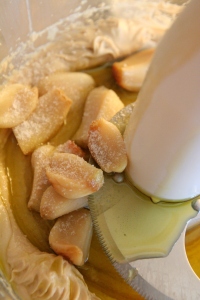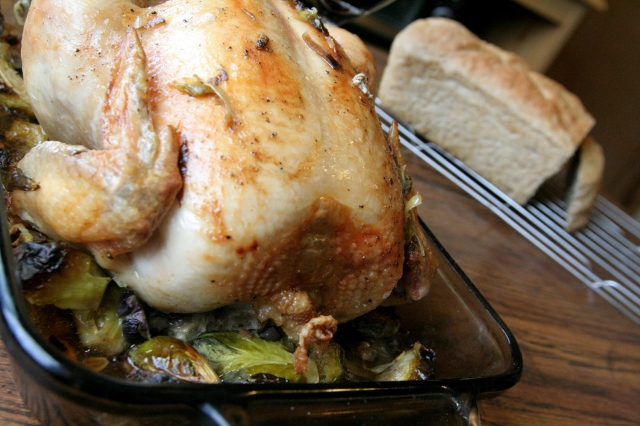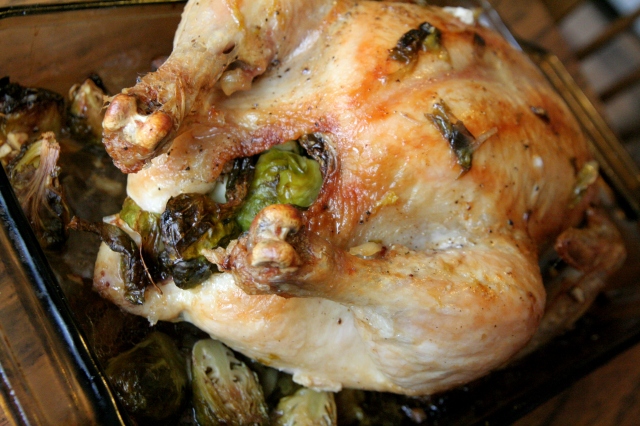Bangers, Brussels, and Birds! (And how they buy you some time…)
The Nature of Rest
What the Bible and Creation Teach Us About Sabbath Living
Intentional Parenting
Nature Studies
Apologetics
Adventure
Free Resource
Entrepreneurship
Homeschooling
Faith
Books
Categories
Master Naturalist, Bible teacher, author, wife, and mama of four! Join our adventures of discovering God while adventuring in creation.
I'm Eryn
Hey there!
Listen Now
Order now
 First off, welcome to the new From Famine to Foodie Blog home! This has been some weeks in the making, mostly in my head, but now on your screen! It was time for an update, some cosmetic work, and some technical updates. One of those technical updates is the correction of what many of you brought to my attention last week: that you had difficulty posting a comment to the blog, mostly from mobile devices. Fixed! So please continue to comment in reply to my Real Food Questions of the Week. Please also help promote the blog and keep updated on our adventure by entering in your e-mail address and clicking the “Follow” button to the right of the blog, thanks!
First off, welcome to the new From Famine to Foodie Blog home! This has been some weeks in the making, mostly in my head, but now on your screen! It was time for an update, some cosmetic work, and some technical updates. One of those technical updates is the correction of what many of you brought to my attention last week: that you had difficulty posting a comment to the blog, mostly from mobile devices. Fixed! So please continue to comment in reply to my Real Food Questions of the Week. Please also help promote the blog and keep updated on our adventure by entering in your e-mail address and clicking the “Follow” button to the right of the blog, thanks!
This post has been swimming around my head all week. It’s mostly inspired by, and in response to the majority of your replies to the question I posed last week: What is your number one hindrance, or interference, to eating real food?
The vast majority of you replied that time, or the lack thereof, is your number one impediment to cooking and eating real food. I was a little taken back by this. I did expect this answer to be up there on the list of reasons. However, I actually expected the expense of real food to be the number one reply. The cost, however, received no attention. Expense was not listed by one person as a reason for not eating real food.
 This got me thinking about priorities of our resources. I imagine most people would say our number one essential resource is money. It’s a powerful thing. In many ways, the world runs on it. Marriages are divided by it. In fact, it’s the number one cause of divorce. It holds great dominance and authority in our day and age. However, as many of you attested to in your comments last week, time is of the essence.
This got me thinking about priorities of our resources. I imagine most people would say our number one essential resource is money. It’s a powerful thing. In many ways, the world runs on it. Marriages are divided by it. In fact, it’s the number one cause of divorce. It holds great dominance and authority in our day and age. However, as many of you attested to in your comments last week, time is of the essence.
We’re reminded in God’s Word of the significance of our time and how we spend it:
“Look carefully then how you walk, not as unwise but as wise, making the best use of the time, because the days are evil. Therefore do not be foolish, but understand what the will of the Lord is.” Ephesians 5:15-17
What, then, is worthy of this most precious possession and resource in our lives? That is definitely a matter of priority in everyone’s life. It will look different from each person to the next, and will differ even during different stages of our lives. Barabara Kingsolver offers this perspective in her book Animal, Vegetable, Miracle: “It’s easy for any of us to claim no time for cooking; harder to look at what we’re doing instead, and why every bit of it is presumed more worthy.” My focus for this post is not so much a seminar on time management. I only want to set it up as a principle and foundation for my argument of why the kitchen, and ultimately the health of our families, deserves to be a high priority on our time management list. This is my attempt to come alongside any of you who simply don’t have the time to cook and eat real food, and share some practical things we’ve learned this past year on how to “create” more time for the kitchen, and a strong defense for why it is so vital we do so.
We are all coming at this from different angles. Some of you work, I understand. Some of you have small children–a lot of them. But I would challenge you to see these not as hindrances to eating real food, or excuses to accept our “convenience food” culture. Instead, see these–those little eyes smiling back at you from the high chair after dumping their peas all over the floor to “share” with the dog–these are your reasons, your motivation for setting out on this venture to feed your family well.
A few months ago, I would have felt unqualified to give advice on time management to those with part or full-time jobs. Then I was offered a job. The past couple of years I’ve been doing some very part-time and occasional web work from home for one of my mom’s clients. During the past few months, however, the work load has increased, and led to an actual part-time position! This has been a huge blessing to our family financially, but has also thrown us a curve ball in balancing our time for our health. Now I will admit, I still have a “handicap”, as Grayson has been home a lot (roofing in the winter is less than ideal), and he, the wonderful husband and cook that he is, has been helping out a lot in the kitchen. It has still been a struggle, however, to balance our time. Barbara Kingsolver speaks well to the importance of creating a real food culture in our homes, even if we work. “Full-time homemaking may not be an option for those of us delivered without trust funds into the modern era. But approaching mealtimes as a creative opportunity, rather than a chore, is an option.”
Pastor Mark Driscoll of Mars Hill Church in Seattle explains in his sermon on planning that we all have one plate. Some of our plates are larger than others. Some are full dinner plate size, others, well, are dinner roll plates. We each can only fit so much on our plate. When we add one thing, another must come off. Well, let me tell you, marriage, a toddler, pregnancy, ministry, work, and school (just to name the majors), quickly fill up a plate. Our challenge, then, is to make this plate as healthy as we possible can. How can we successfully cater to every area of our lives? We are finding that by making sure what is on our literal dinner plates is healthful, then the areas of our lives we allow a place on our figurative dinner plates are nourished and thriving likewise. Outside of seeking the Lord and spending time with Him, investing time in our health is proving to be one of the greatest ways we can nourish and protect each aspect of our lives. Does our dinner plate and what we feed ourselves and our family not then warrant a healthy percentage of our time?
 We are no champions on time management, but to demonstrate how we personally pursue this in our own home, I’ve come up with a simple formula we often use: Versatile ingredients + Forethought = Quick, simple, healthful meals.
We are no champions on time management, but to demonstrate how we personally pursue this in our own home, I’ve come up with a simple formula we often use: Versatile ingredients + Forethought = Quick, simple, healthful meals.
What does this look like? In our home this week, it all began with some roasted garlic. “Colossal” garlic was on sale this week for $0.25 a head. I’ve bought 12 (so far…) I avoided garlic at all costs during my first trimester of pregnancy, and it’s been quite a while since I roasted any. The familiar aroma began making its way through the house after about 20 minutes in the oven. Another 15 minutes of the scent and I found my mouth watering at the foreboding pleasure of spreading one of those soft, mild, nutty cloves onto a warm piece of bread.
This garlic, however, had a mission in life. It was to become a primary ingredient the next day in my second ever attempt at homemade hummus. My first attempt, made over a year ago, used fresh garlic, which is commonly called for in hummus. However, I added a few too many cloves and it was basically inedible. I also didn’t know how long a life-span hummus held. After about a month of it sitting untouched in the fridge, it began to gather mold, and met its destiny in the trash bin. That was my first attempt. Attempt number 2 however, was a grand success. I actually used much more garlic this time. However when garlic is roasted, the flavor becomes much, much more mild than when it is fresh. For one batch of hummus I used 12 cloves of roasted garlic. I’ve actually been known to sit down with a couple pieces of homemade bread and top them with an entire head of roasted garlic–and consume all of it. Trust me, this roasted garlic thing is incredible.
And so with our hummus experiment a success, we now had a batch of roasted garlic hummus, sun dried tomato hummus, and extra roasted garlic cloves ready and prepared for the week (hummus does only last a week in the fridge, by the way). Readily available with no further preparation, we can spread these on our toast or dip some pitas (once I figure out how to make pitas…) in them for a healthful, quick snack.
~ Total time: ~
Roasting garlic: 5 Minutes prep, 30 minutes cooking.
Hummus: It’s a little hard to estimate as it was my first real attempt, and I was taking photos of the whole process, but I’d guess about 30 minutes for 2 batches (4 cups total)
The roasted gar lic ended there, but then the chicken took over. We bought a 5lb organic, free-range chicken from Trader Joes this week. At $2.69/lb it ran us roughly $13.50, but oh was this chicken beautiful! Why free-range? A happy chicken makes a tasty chicken. These chicks live their lives as they were meant to: freely roaming and eating whatever bugs and plants they fancy. They may be “housed” for part of the day, but they are allowed access to roam outside. Simply put, when animals live and eat in a setting similar to what they were meant to in the wild, they are healthier. Healthier animals produce healthier meat. Healthier meat produces healthier us. Not to mention, by consuming animals raised in a healthy manner, we’re avoiding the nasty consequences of industrial farming, which lead to numerous health threats such as E. coli and mad cow disease, but that’s for another blog.
lic ended there, but then the chicken took over. We bought a 5lb organic, free-range chicken from Trader Joes this week. At $2.69/lb it ran us roughly $13.50, but oh was this chicken beautiful! Why free-range? A happy chicken makes a tasty chicken. These chicks live their lives as they were meant to: freely roaming and eating whatever bugs and plants they fancy. They may be “housed” for part of the day, but they are allowed access to roam outside. Simply put, when animals live and eat in a setting similar to what they were meant to in the wild, they are healthier. Healthier animals produce healthier meat. Healthier meat produces healthier us. Not to mention, by consuming animals raised in a healthy manner, we’re avoiding the nasty consequences of industrial farming, which lead to numerous health threats such as E. coli and mad cow disease, but that’s for another blog.
Back to our chicken. As I was headed out the door to run some errands and hit the gym, Grayson was carefully prepping a mixture of chopped onion, garlic, and brussels sprouts to stuff the bird with. Let me just say, when I walked through the door 2 hours later after my workout, coming home to that beautiful roasted bird surrounded by its own luscious juices and roasted vegetables was quite a stupendous welcome, and relief to my after-workout appetite. This chicken may have took us back $13.50, but it will serve us several meals this week. And when the meat is gone, the carcass will simmer down in water and veggies to make an incredible chicken noodle soup this weekend. The veggies that Gray stuffed the bird with were slightly underdone, the ones surrounding the bird were perfect. He had also put a single Irish Banger sausage inside, which he raved over. Next time, we’ll leave all the veggies surrounding the chicken, and fill the cavity with all-natural sausages. Then, along with the bird and veggies, we’ll have fully-cooked sausage on hand for more quick, healthful meals.
~ Total time: ~
Roast Chicken with Brussels and Bangers: 20 Minutes prep, 2 Hours cooking
That morning after breakfast, I had invested about 5 minutes of prep work into some boiled eggs and a loaf of fresh, whole-wheat bread.
~ Total time: ~
Boiled Eggs: 3 Minutes
Whole-Wheat Bread: 5 minutes prep, 2 hours to rise and bake, (during which I had to do basically nothing)
So let’s take a step back and tally up our versatile, healthful ingredients now on hand:
- Roasted garlic
- Hummus (2 flavors)
- Fully-cooked frozen chickpeas (extras from making hummus)
- Whole roasted chicken
- Roasted veggies
- Fresh bread
- Hard boiled eggs
I also make a habit of stocking the house with versatile, wholesome ingredients from the market. Some of my favorites to always have on hand are spinach and mushrooms (both are quick to prep and cook, and both contain “umami”, one of the five basic tastes, fulfilling our desire for a meaty or savory element). Fresh organic spring mix. Berries and other fruit (especially for the little boy). Various local cheeses. Natural peanut butter. Fresh peas out of the pod (new discovery at Trader Joes). Garlic and red onions. Lemons. Brown Rice. Whole-wheat pastry flour. Whole-wheat bread flour.
With all of these on hand, we now have the necessary ingredients to throw together a quick breakfast of boiled eggs and hummus toast, a lunch of spring mix salad with fresh peas, roast chicken, boiled egg, and a homemade dressing of olive oil, lemon juice, salt and pepper (the dressing took me 1 minute to make). The boiled eggs and roast chicken could also easily create a chicken and egg salad sandwich on our homemade bread. We could also cook up some brown rice for a chicken and veggie stir-fry. I use our bread machine to mix up pasta dough made from whole-wheat pastry flour, and make a batch of homemade, whole-wheat pasta in about 30 minutes. We could then saute our fresh pasta with spinach, mushrooms, and fresh peas in olive oil. I use the roasted garlic in pretty much any recipe, it is a very flexible ingredient. These are only a few of the ideas for simple wholesome meals we can create with our versatile ingredients now on hand. Yes, it takes a little bit of time up front, but it pays off throughout the week. Even more importantly, it pays huge dividends for our health when we reach for these fresh ingredients over a factory processed granola bar or a quick trip through the drive-thru.
Versatile ingredients are only one part of our equation, however; we must also focus on forethought. Yesterday morning I had to think ahead to the next few days to see that boiled eggs and fresh bread would be some good things to have on hand. For my hummus, I had to think ahead by soaking and simmering the chickpeas beforehand. I also made the whole process lesser a task by roasting the garlic the day before. A little bit of planning goes a long way when it is spent providing useful and healthy ingredients to use throughout the week.
 I know this is no exhaustive conclusion on how to make cooking real food work in a time-crunched world. It’s just a little glimpse into what we are eating this week, and how we made it happen. I do, however, want to quickly touch on one more time requirement of the kitchen: the burdensome aftermath known as that huge pile of dirty dishes sitting on the counter. My sister actually brought this one up to me after my last post. Cooking real food dirties a lot of dishes. There is no getting around that. There have been times when I’ve been quite tempted (and sometimes succumbed) to going out to eat simply because all the dishes are dirty, and to cook would require washing them first, and afterwards…. There are, however, some simple and creative ways to make it less of a chore, or an excuse not to cook. I’ve learned that I personally must discipline myself to wash the dishes before bed. If I wake up to dirty dishes, it’s a bad start to the day, and I don’t want to work around the mess to cook breakfast. It’s a discipline issue. I’ve also been challenging myself to incorporate small practices to help myself with this chore. For one, I rinse the dishes right after we use them, eliminating the need to scrub later. For big dishes (pans and mixing bowls), just wash them right away. They take up far too much room on the counter or in the sink, and they are much harder to wash if you wait. Plus, they only add an intimidation factor to the pile of dirty dishes. Finally, clean as you go after every meal and snack. It takes a mere 10 seconds to wash the plate you just used for your sandwich.
I know this is no exhaustive conclusion on how to make cooking real food work in a time-crunched world. It’s just a little glimpse into what we are eating this week, and how we made it happen. I do, however, want to quickly touch on one more time requirement of the kitchen: the burdensome aftermath known as that huge pile of dirty dishes sitting on the counter. My sister actually brought this one up to me after my last post. Cooking real food dirties a lot of dishes. There is no getting around that. There have been times when I’ve been quite tempted (and sometimes succumbed) to going out to eat simply because all the dishes are dirty, and to cook would require washing them first, and afterwards…. There are, however, some simple and creative ways to make it less of a chore, or an excuse not to cook. I’ve learned that I personally must discipline myself to wash the dishes before bed. If I wake up to dirty dishes, it’s a bad start to the day, and I don’t want to work around the mess to cook breakfast. It’s a discipline issue. I’ve also been challenging myself to incorporate small practices to help myself with this chore. For one, I rinse the dishes right after we use them, eliminating the need to scrub later. For big dishes (pans and mixing bowls), just wash them right away. They take up far too much room on the counter or in the sink, and they are much harder to wash if you wait. Plus, they only add an intimidation factor to the pile of dirty dishes. Finally, clean as you go after every meal and snack. It takes a mere 10 seconds to wash the plate you just used for your sandwich.
 Ok, that was all pretty simple. Now on to the creative. This week, to make time for cleaning the dishes, I let my kid make messes. Yes–messes. One day it was a painting project. Another day I let him sit in his high chair with stickers and decorate his eating tray (and the floor below), however his heart so desired. I was finding Scooby Doo in various places throughout the house for days. Another day it was yogurt. I mixed him up some blueberry yogurt this week, which is another example of a quick healthy snack to have on hand that takes very minimal prep work (mix organic, whole-milk yogurt with some thawed, previously frozen blueberries. I added some honey and Ceylon cinnamon as well for flavor and to help with his cold). Zeke has been learning how to use a spoon, and yogurt was a good challenge. He painstakingly picked every single blueberry out of that little bowl, and then when they were gone, with even more focus he concentrated on the yogurt itself. Each time he submerged his spoon into the bowl, he would work so very hard to lift it to his mouth, leaning himself as close as possible to make the trip shorter, then maneuver the spoon into his mouth with little spillage. Each trip of the spoon took at least 5-10 seconds. The whole process bought me 20 minutes to do the dishes.
Ok, that was all pretty simple. Now on to the creative. This week, to make time for cleaning the dishes, I let my kid make messes. Yes–messes. One day it was a painting project. Another day I let him sit in his high chair with stickers and decorate his eating tray (and the floor below), however his heart so desired. I was finding Scooby Doo in various places throughout the house for days. Another day it was yogurt. I mixed him up some blueberry yogurt this week, which is another example of a quick healthy snack to have on hand that takes very minimal prep work (mix organic, whole-milk yogurt with some thawed, previously frozen blueberries. I added some honey and Ceylon cinnamon as well for flavor and to help with his cold). Zeke has been learning how to use a spoon, and yogurt was a good challenge. He painstakingly picked every single blueberry out of that little bowl, and then when they were gone, with even more focus he concentrated on the yogurt itself. Each time he submerged his spoon into the bowl, he would work so very hard to lift it to his mouth, leaning himself as close as possible to make the trip shorter, then maneuver the spoon into his mouth with little spillage. Each trip of the spoon took at least 5-10 seconds. The whole process bought me 20 minutes to do the dishes.
Cooking, eating, and cleaning up after real food takes time, of which we have so little of these days. It’s a question of priority: is your health and the health of your family a high enough priority to you for you to find ways to make it work? Trust me on this one–it’s a fun challenge! Not all days are successful, be aware of that so it doesn’t leave you discouraged to give up. The process overall, however, is a worthwhile one; one in which you will begin to reap the benefits of quickly, encouraging you to press on and continue in your own journey to eating for health.
“I have no argument with convenience, on principle. I’m inordinately fond of my dishwasher, and I like the shiny tools that lie in my kitchen drawers, ready to make a menace to any vegetable living or dead. I know the art of the quickie supper for after-a-long-day nights, and sometimes if we’re too weary we’ll go out to a restaurant, mainly to keep the kitchen clean. But if I were to define my style of feeding my family, on a permanent basis, by the dictum, ‘Get it over with, quick,” something cherished in out family life would collapse.” Barbara Kingsolver, Animal, Vegetable, Miracle
Alright readers, hopefully this week there will be no technical difficulties in leaving comments on the blog. So here is the question of the week, please comment your replies below: What are some specific benefits you’ve seen in your life (or your family) when you invest time in your health?
learn more
Raising kids stirs something deep in our souls — an innate knowing that our time is finite. Taking my kids outside in creation, I’m discovering how to stretch our time and pack it to the brim with meaning. God’s creativity provides the riches of resources for teaching the next generation who He is and how He loves us. Join our adventure and discover inspiration and resources for refusing rush, creating habits of rest, living intentionally, and making the most of this beautiful life!
I'm Eryn, Master Naturalist, Author, & Bible Teacher
Hey there!
Receive free inspirational resources for refusing rush, creating habits of rest, parenting with intentionality, and teaching our kids who God is through what He has made!
Inspired
Be
Brand + Website by Amarie Lael Design | TERMS & CONDITIONS + PRIVACY POLICY | Copyright 2011 - 2026 Eryn Lynum
Contact
Speaking & media
About
Books
Shop
Videos & Interviews
Email List
Stories
Free Downloads
Resources
Home
@erynlynumauthor
The Nature of Rest
What the Bible and Creation Teach Us About Sabbath Living
Now Available!
Order
X
Signed Copy








This week I challeneged myself to cook one real food meal everynight to proove to myself that it would not take that much time and effort. This week has been very fun and had lots of really good food. I also felt likeI was way more productive this whole week. The biggest benefit for my family is quality time. we get to cook together plus I make sure that dinner is ready before Mike goes to work evernight. Being a third shifter he rarely has time to eat a healthy meal or to see Hanna (our daughter) and I so these meals have become very important to us this week and I already have next weeks menue prepared. (anotjer great way to save time and money, meal plan and grocery list one trip to thestore the whole week!)
I have found that preparing whole, well rounded meals lifts depression from our household. We feel better, so we also treat each other better. What works best for me is having my husband agree to take full responsibility of the kids for three hours on a Sunday afternoon so that I can prepare about a week worth of dinners without interruption. The trade off is that on those weekends I watch the kids for three hours on Saturday so hubbie can work on whatever projects he needs to. I’m ready to drop after three hours of peeling, chopping, sautéing, baking, and storing. However, all of our weeknight meals just need to be popped in the oven or warmed on the stove when evening comes, making my weekday afternoons easy and carefree (Well, sort-of. There are still diapers to be changed and messes to clean!)
Wow, that’s a fantastic idea!